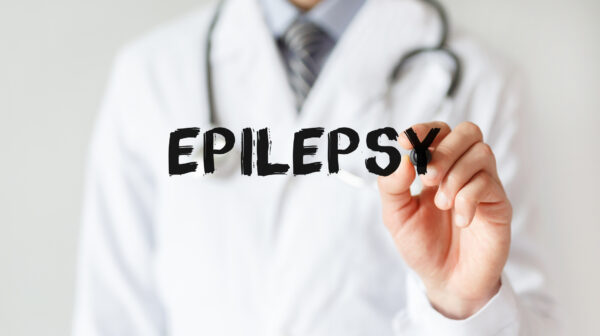
A small biotech company has made a deal with the federal government to develop a drug for patients with a rare seizure disorder that can happen after exposure to nerve agents, in addition to announcing successful results of a Phase III trial of its lead product candidate in a rare, genetic form of epilepsy.
Radnor, Pennsylvania-based Marinus Pharmaceuticals said Monday that it had entered the contract with the Department of Health and Human Services’ Biomedical Advanced Research and Development Authority to develop the intravenous drug ganaxolone for refractory status epilepticus, or RSE. RSE can happen as a result of certain medical conditions or after exposure to nerve agents, and many people do not respond to treatment with first- and second-line anticonvulsant drugs. The company’s lead product candidate is an oral formulation of the same drug that it said was successful in a Phase III trial in CDKL5 deficiency disorder, or CDD, among children and young adults.
Under the agreement, BARDA will fund up to $51 million of the $84 million contract for programs related to RSE development, including preclinical studies of IV ganaxolone in animal models and clinical development of the drug, including treatment of people exposed to nerve gas.
Shares of Marinus rose more than 57% on the Nasdaq when markets opened Tuesday and were up 75% in mid-morning trading, following the two announcements.
“Having medical products at the ready to save lives in emergencies requires strong public-private partnerships,” acting BARDA Director Gary Disbrow said in a statement. “To help our country respond effectively to public health threats and be cost-efficient, we look for product candidates that can fill a need on the commercial market as well as meet public health emergency needs.”
Also on Monday, Marinus announced successful results from the 101-patient Phase III Marigold trial of oral ganaxolone in CDD.

A Deep-dive Into Specialty Pharma
A specialty drug is a class of prescription medications used to treat complex, chronic or rare medical conditions. Although this classification was originally intended to define the treatment of rare, also termed “orphan” diseases, affecting fewer than 200,000 people in the US, more recently, specialty drugs have emerged as the cornerstone of treatment for chronic and complex diseases such as cancer, autoimmune conditions, diabetes, hepatitis C, and HIV/AIDS.
The trial met its primary endpoint of showing a statistically significant 32.2% reduction in median motor seizure frequency at 28 days, compared with 4% in the placebo arm. However, while the trial showed statistical significance in exploratory secondary endpoints and showed trends in favor of several predefined secondary endpoints, it did not meet statistical significance on the latter.
Based on the results, the company plans to file for Food and Drug Administration approval in the middle of next year and for European Medicines Agency approval by the end of the third quarter of 2021.
In a note to investors, Baird analyst Brian Skorney called the results a “welcomed surprise.” Data from the prior Phase II study in CDD were not placebo-controlled and in a small patient population, and the drug has a challenging path in other indications, he wrote, thereby lowering expectations for the Marigold trial. “However, the Ph. III trial comfortably met statistical significance on the primary endpoint in a difficult to treat disease,” he wrote. He also added that despite the study missing the predefined secondary endpoints, it was not powered for them.
Photo: Michail_Petrov-96, Getty Images













